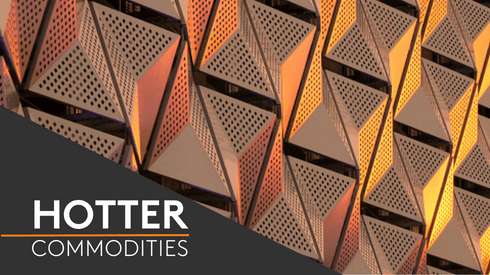Aluminium: Price forecasts raised
We correctly expected the macro reflationary theme to raise the prices for all base metals but, with it being the base metal with by far the weakest fundamentals, we had expected the price of aluminium to underperform relative to its fundamentally stronger peers. The weight of money has raised aluminium more than expected, however, and we have increased our forecasts accordingly, including raising our base case average for the third quarter of 2020 to $1,693 per tonne.
Copper: Positive fundamentals exerting influence again
In our forecasting for copper and the other base metals, we embraced the reflation narrative just after policymakers unleashed unprecedented policy stimulus measures to fight the shock of Covid-19. While we believe that the macro environment will continue to exert a positive influence on prices, our bullishness for copper in the next few months is also increasingly driven by this market’s positive fundamental forces.
Lead: Relative underperformance bodes ill
While other metals continue to push the envelope on the upside, lead has been stuck below both its August high of $2,025 per tonne and its January high of $2,038 per tonne. We think that this relative underperformance reflects both weak fundamentals, namely a post-lockdown pick-up in secondary supply, and poor demand, because the few car buyers there are in the market at the moment are being incentivized to buy electric vehicles. Nevertheless, the weak dollar and weight of money in financial markets should still raise lead prices, even if this market’s weaker fundamentals make it one of the laggards of the base-metals complex.
Nickel: Time for a price correction
The London Metal Exchange nickel price was as high as $15,745 per tonne on Tuesday September 1, another new high. From a technical perspective, we have been becoming increasingly wary of a pull-back to unwind some of the overbought conditions after such a strong rally. The 20-day moving average is way down at $14,722 per tonne, some $1,000 per tonne beneath the September 1 high. Even a correction this far would not damage the established uptrend, but it would reset the price and potentially prepare it for another run-up to new highs in the fourth quarter.
Tin: Expecting September rebound after weak August
Our view has been that softness in tin prices since late July would prove transient. We have argued that the weakness in refined market conditions – caused by poor demand in the summer months and evident in the 50% increase in global exchange inventories since June – is a short-term phenomenon. We have been expecting tighter refined market conditions from September and in the months ahead, reflecting constrained growth in refined output and a recovery in demand. The strong start to September for tin prices so far supports this view.
Zinc: Next target, $2,600 per tonne
Zinc demand will continue to rebound from the second-quarter lows across the remainder of 2020, but will remain somewhat below year-earlier levels amid persistent consumer caution. In contrast, LME zinc price sentiment found fresh momentum at the start of this week. While short-term indicators are starting to look overbought, with prices approaching $2,600 per tonne, the similarities to the recovery after the 2008 financial crisis imply that the current up-leg could still have room to run.
Click here to view the Base Metals Market Tracker in full.





